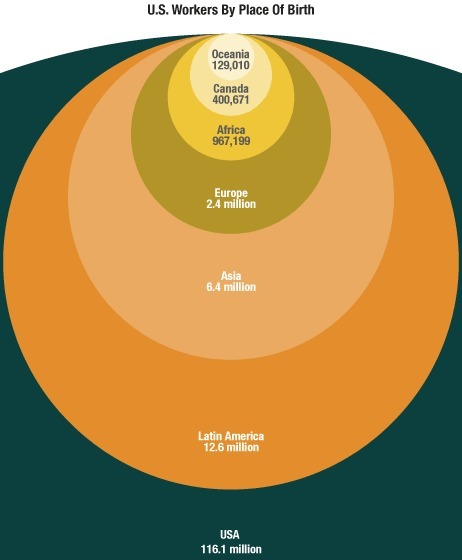Tiny Tamaula is the new face of rural Mexico: Villagers are home again as the illegal immigration boom drops to net zero. Full story on CSMonitor.com: http:/...
Contrary to popular opinion, illegal immigration from Mexico to the United States is not really a problem in 2012. As conditions on both sides of the border have changed, this gives a glimpse into the life choices of Mexican villagers. For more on this issue see the complete article at: http://www.csmonitor.com/World/Americas/2012/0408/Home-again-in-Mexico-Illegal-immigration-hits-net-zero ;
Via Michael Miller



 Your new post is loading...
Your new post is loading...








I enjoy stories like this, because it demonstrates people willing to fight for their home. Many interesting ideas lie behind stories such as this one, but what I find especially intriguing is the dynamics of money in relation to these small rural villages. Money and "income" drives our current economic positions, but there are some places which were left behind and have none of the jobs we in the first world would traditionally think of. They had to either subside off their own products through farming, or trade their livelyhood for a small amount of money. Put simply, money is necessary for a so called "modern" existence, but not necessary for survival. These villagers are working for their own future in their home country now though, while it may not be necessarily profitable in the short term, it will pay off for their children in the long term.
(Mexico topic 1)
"Things are not good in the United States. There is not a lot of work and Mexicans like to keep busy." I was surprised by this this comment which sums up one of the main reasons why many Mexican immigrants are returning to Mexico. This implies that as the American economy has worsened, Mexico's must be improving (at least by comparison). This completely supports the concept of Mexico evolving into a "semi-core" country.
Additionally, I hope this quote will help to shed some truth onto the negative lazy stereotype many Americans associate with immigrating Mexicans.
With a little help from the video, it is clear now, to understand why many Mexican folks are actually not leaving their country for the US. It said in the video that there is not a lot of work in the US and Mexicans like to keep busy. Also, a lot of Mexicans are finding opportunity right in their own country where there once was no opportunity. Electricity reaches the house, they have paved roads and updated pipes. They will need to rely on us for fuel. It is also nice for them to know that they do not need to leave their families behind in Mexico while they go to the US, they can have the satisfaction of working in local fields and seeing family when they get home at the end of the day.